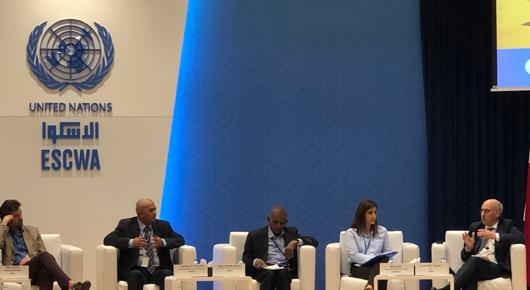Sustainable water management is a key to ending hunger and poverty

22 March 2019, Beirut – The Food and Agriculture Organization of the United Nations (FAO) actively participated in a special event organized by the United Nations Economic and Social Commission for Western Asia (ESCWA) and aimed at commemorating the World Water Day.
The World Water Day is held annually on the 22nd of March 2019 to advocate for the sustainable management of freshwater resources. This year’s World Water Day theme is “Leaving no one behind” as part of the 2030 Agenda for Sustainable Development.
During the event, FAO, ESCWA, the League of Arab States, UNESCO, Sudan, Yemen and the Lebanese Youth Parliament for water discussed the data of the recently published World Water Development Report at the regional level.
“The Near East and North Africa region (NENA) may be facing the most severe intensification of water scarcity in history,” Mr. Jean-Marc Faurès, FAO Regional Programme Leader for the Near East and North Africa stated during the meeting.
Faurès also highlighted that agriculture, which uses over 85 percent of the total freshwater, will most likely absorb the bulk of this shock and added stating, “this shortage will have major implications for food security and the rural economy of the region.”
In light of this, FAO, together with partners across the region is convening the “Land and Water Days 2019 for the Near East and North Africa” in Cairo during 31 March – 4 April, to find collaborative solutions for the improvement of agriculture, water management and food security in the region.
This upcoming conference is an unprecedented knowledge-sharing platform in NENA region that will give governments, development partners, technical experts, and civil society organizations the opportunity to jointly deliberate on innovative and effective ways to critically review prevailing patterns of agricultural production and land and water management in the region.
The platform will also seek new solutions to improve current patterns and evaluate their potential for sustainability and long-term change.
